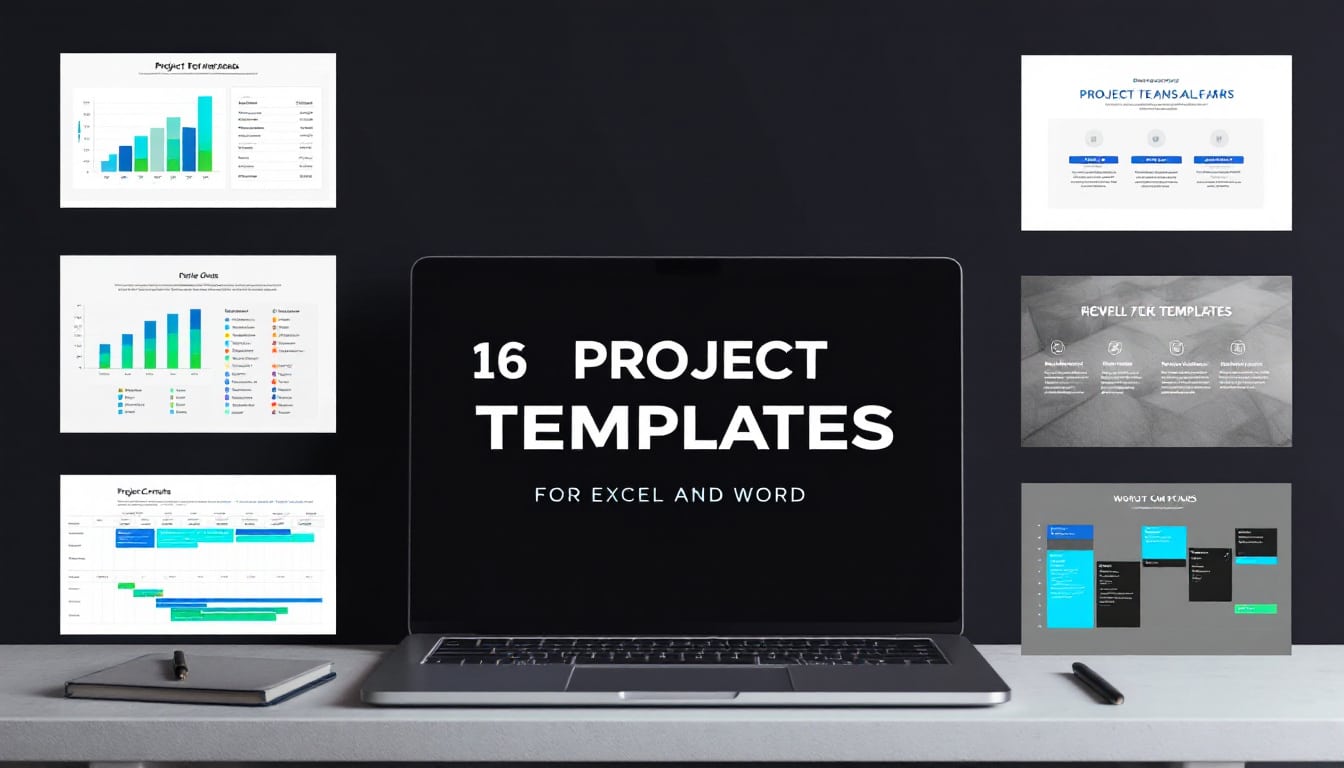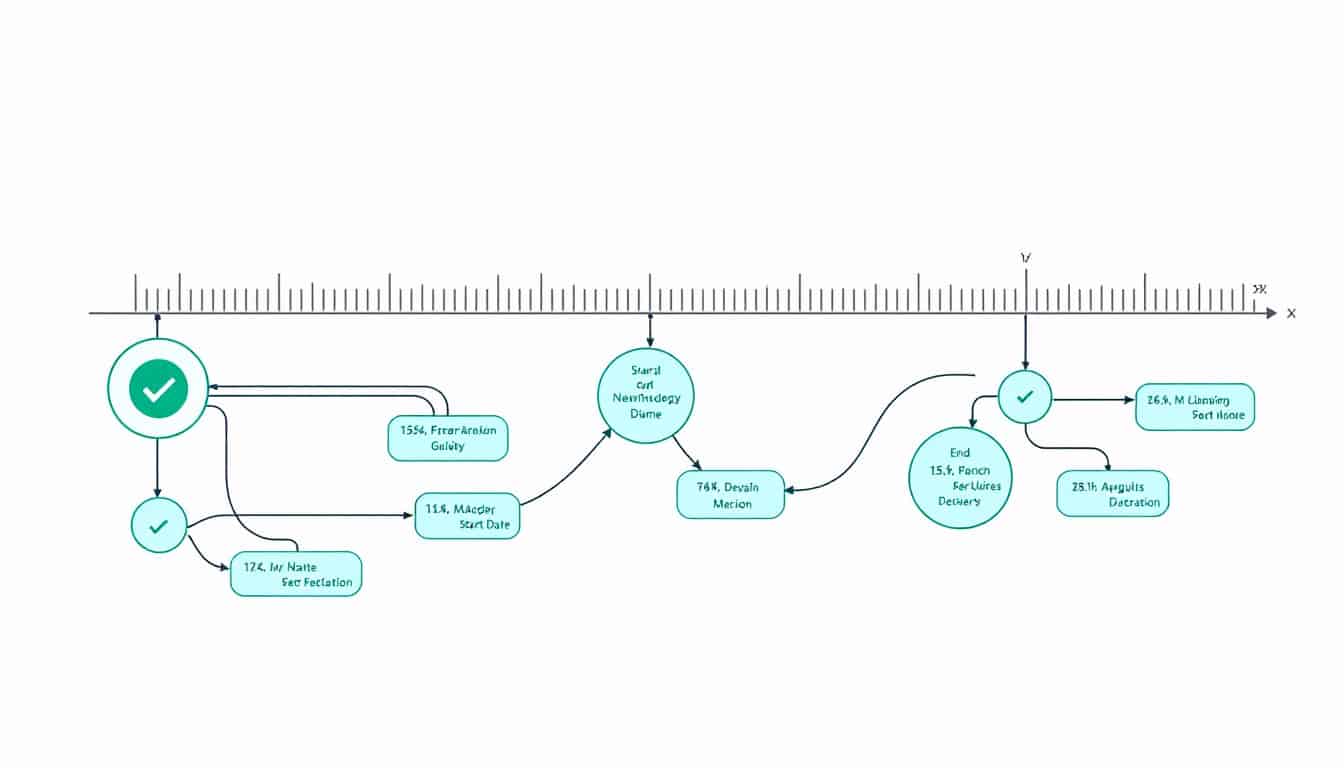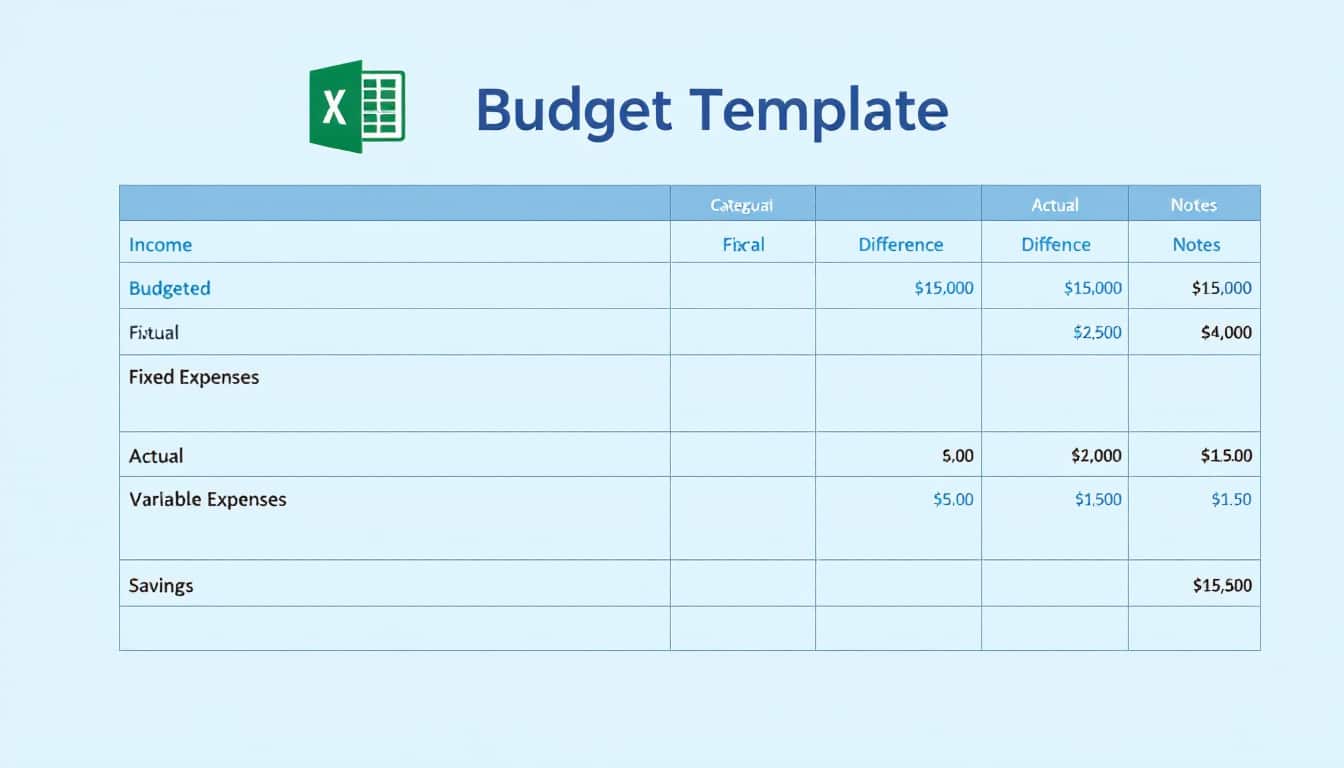Construction projects embody exciting challenges. Their success depends on a precise coordination of multiple elements. Each phase, from design to construction, requires rigorous attention.
Mastering these complex steps requires specialized tools. Project management in construction is essential for meeting deadlines and benefits. With suitable software, teams can synchronize their efforts effectively. This methodology ensures a harmonious execution of architectural initiatives.
🔥 Nous recommandons Ideamap
Ideamap est l’outil idéal pour un brainstorming ou un projet collaboratif. Grâce son interface facile et à ses fonctions IA, Ideamap booste votre créativité tout en favorisant une meilleure organisation de vos idées pour atteindre vos objectifs.

What is construction project management?
Construction project management is a complex process that encompasses all the activities necessary to carry out a construction project, whether it involves building a commercial building, a single-family residence, or a public infrastructure. This process involves the meticulous coordination of numerous components, such as design, planning, scheduling, and the construction itself. Each phase requires particular attention to ensure that the project meets the deadlines, budget, and established quality standards.
Unlike other types of projects, construction project management is often mission-oriented with a specific focus, culminating in the physical completion of the construction. This means that the project’s end is directly linked to the delivery of the finished work, adding an extra dimension of accountability and rigor to the management process. Furthermore, construction project management often must integrate a variety of specific constraints related to design and execution, requiring a multidisciplinary approach and close collaboration among various professionals such as architects, engineers, and urban planners.
To navigate this complexity, many construction project managers turn to project management software. These tools are designed to organize planning, scheduling, resources, and associated reports for construction projects, thereby enhancing productivity and collaboration among different stakeholders. For example, Microsoft Project is a popular tool, although some professionals prefer alternatives like ProjectManager for its robustness and flexibility.
Why is construction project management essential?
The success of a construction project largely depends on the effectiveness of its management. A well-orchestrated project management allows to optimize resources, minimize costs, and meet deadlines. Without rigorous management, construction projects are likely to encounter various problems such as budget overruns, delays in deadlines, and quality defects that can compromise the entire initiative.
Moreover, construction project management ensures compliance with prevailing standards and regulations. Constructions often have to adhere to strict building codes, environmental regulations, and safety requirements. Careful management ensures that all these obligations are met, thereby reducing the risks of sanctions or disputes.
Another crucial aspect is communication. Project management facilitates effective communication among the different stakeholders, including owners, contractors, architects, and engineers. Good communication allows for quick resolution of problems, informed decision-making, and ensures that all parties are aligned on the project objectives.
Finally, effective project management contributes to risk reduction. By identifying and assessing potential risks early on, managers can implement mitigation strategies to minimize the impact of unexpected issues. This includes elements such as weather delays, material cost fluctuations, and labor issues.
What are the key phases of construction project management?
Construction project management is divided into several distinct phases, each playing an essential role in the overall progress of the project. Understanding these phases helps ensure smooth and orderly progression from the initial design to the final delivery of the work.
Design
The design phase constitutes the first critical step. It involves developing the architectural and engineering plans, as well as defining the project’s technical specifications. During this phase, the needs and objectives of the client are translated into drawings and detailed technical documents that will serve as a reference for the following phases. A well-developed design accounts for site constraints, building standards, and the aesthetic and functional expectations of the client.
Planning
Once the design is completed, the planning phase begins. This step involves establishing a detailed timeline, allocating necessary resources, and defining funding sources. Planning also includes developing a precise budget and setting up a risk management plan to anticipate and mitigate potential obstacles. The use of software like ProjectManager can greatly facilitate this phase by offering task management and progress tracking tools.
Execution
The execution phase is where the actual construction work takes place. This step involves coordinating work teams, managing material deliveries, and supervising workers. An effective project manager ensures that every aspect of the plan is implemented according to the specifications established during the design and planning phases.
Monitoring and Control
Monitoring and control is an ongoing phase where the project’s progress is regularly assessed against the initial plan. This includes monitoring costs, timelines, and quality, as well as adapting plans in response to unforeseen circumstances. Key performance indicators (KPIs) play a crucial role in this phase, allowing for measuring efficiency and identifying areas needing adjustments.
Closure
Finally, the closure phase marks the formal end of the project. It includes the delivery of the work to the client, the final inspection, and the documentation of all project stages. This phase ensures that all contractual obligations have been fulfilled and that the client is fully satisfied with the final outcome. A well-executed closure also allows for lessons learned for future projects, thereby improving project management practices.
What are the roles and responsibilities in a construction project management team?
Effective construction project management relies on a well-structured team, where each member has clearly defined roles and responsibilities. Here are the main actors involved:
Project Owner
The project owner is the entity that finances and commissions the construction project. They define the project’s objectives, requirements, and expectations. Moreover, the owner oversees the project in a comprehensive manner, making key decisions such as selecting contractors and approving major project phases.
Construction Project Manager
The construction project manager is responsible for the planning, coordination, and supervision of all phases of the project. They ensure that the project meets deadlines, budget, and quality standards. Furthermore, they manage work teams and serve as the primary link between the owner and the other team members.
To become a project manager, a certification such as the Project Management Professional (PMP) is often required. This certification attests to expertise in project management and is recognized internationally.
General Contractor
The general contractor is responsible for the day-to-day supervision of the work on site. They coordinate subcontractors, manage the supply of materials, and ensure compliance with safety standards. The general contractor plays a key role in the implementation of the project according to the established plans and specifications.
Construction Estimator
The construction estimator is responsible for the cost calculation of the project. They evaluate expenses related to materials, labor, and other necessary resources. An accurate estimate is essential to create a realistic budget and ensure the profitability of the project.
Subcontractors
Subcontractors are specialists hired to perform specific tasks such as plumbing, electrical, or framing. They work under the supervision of the general contractor and are essential for executing the technical aspects of the project.
Effective collaboration among these various actors is crucial for the project’s success. Everyone must understand their responsibilities and communicate transparently to avoid misunderstandings and delays.
What tools are indispensable for construction project management?
To effectively manage a construction project, using the right tools and software is essential. These tools facilitate planning, coordination, and tracking of the various phases of the project, while improving productivity and collaboration among team members.
One of the most popular tools is Microsoft Project, which offers robust functionalities for task management, Gantt chart creation, and resource tracking. However, some professionals prefer alternatives like ProjectManager for its flexibility and advanced features.
Among other essential tools are:
- Planning software: Allows for creating detailed calendars and assigning specific tasks to team members.
- Resource management tools: Help optimize the use of human and material resources, thus avoiding waste and surges.
- Online collaboration platforms: Facilitate communication and real-time information sharing, essential for geographically distributed teams.
- Document management software: Ensures a secure and accessible storage of all project documents, such as blueprints, contracts, and reports.
For effective management of multiple projects, tools like ProjectManager offer features for statistical tracking and detailed reports that help managers make informed decisions and adjust plans accordingly.
What are common challenges in construction project management and how to overcome them?
Construction project management involves numerous inherent challenges, due to the very nature of construction work, which often involves variable elements such as weather conditions, supply chain interruptions, and specification changes during the project. Understanding these challenges and developing strategies to overcome them is essential for ensuring the project’s success.
Risk Management
One of the main challenges is risk management. Construction projects can be affected by various risks, ranging from weather delays to increases in material costs. To mitigate these risks, it is crucial to conduct a thorough risk analysis at the outset of the project and implement effective mitigation plans. Using project management software allows for continuous tracking and assessment of potential risks.
Communication and Coordination
Communication and coordination among various team members and stakeholders can also pose significant challenges. Misunderstandings or incomplete information can lead to costly mistakes and delays. To improve communication, adopting online collaboration platforms and holding regular follow-up meetings are recommended.
Resource Management
Resource management is another major challenge. It is essential to ensure that human and material resources are used optimally throughout the project. The use of resource management tools allows for monitoring availability, skills, and associated costs, thus avoiding waste and surges.
Cost Control
Cost control is also crucial. A budget overrun can jeopardize the project’s viability. To avoid this, it is important to make accurate estimates from the outset and regularly track actual expenditures against the planned budget. Cost tracking tools, like those offered by ProjectManager, can be extremely helpful to keep the project within budget limits.
Why use construction management software?
Using construction management software can transform how a project is managed by providing powerful tools to organize, plan, and track work progress. These software solutions facilitate collaboration among team members, improve transparency, and increase overall productivity.
A construction management software like ProjectManager offers advanced features such as Gantt charts, task lists, and resource management, enabling detailed planning and precise tracking of the various phases of the project. Unlike more traditional tools such as Microsoft Project, ProjectManager provides a more intuitive online interface and collaborative features that better meet the specific needs of construction projects.
Additionally, construction management software allows for centralizing all project information, thus facilitating real-time access to documents, reports, and notices. This reduces the risks of information loss and ensures that all stakeholders have the necessary data to make informed decisions.
Finally, these tools provide detailed analyses and reports that help managers assess the project performance, identify areas for improvement, and adjust strategies accordingly. To learn more about the different software available, refer to our article on the 10 best software.
How to measure the performance of construction projects?
Measuring the performance of construction projects is essential to ensure their success and optimize future processes. A commonly used approach is earned value management (EVM), which combines time, cost, and performance data to provide an overview of the project’s status.
Earned value management allows for comparing planned work with actual work accomplished and the costs incurred. This provides key indicators such as the cost performance index (CPI) and the schedule performance index (SPI), which help managers evaluate the efficiency and overall health of the project. Knowing these indicators makes it easier to take timely corrective actions to avoid budget overruns and delays.
In addition to earned value management, it is also important to measure performance using dashboards and detailed reports. These tools provide a clear visualization of progress, highlighting strengths and areas for improvement. For example, management tools like ProjectManager offer customizable dashboards that allow for real-time performance tracking and generating tailored reports to meet the needs of different stakeholders.
To deepen your understanding of earned value management, check out our comprehensive guide on measuring project performance.
What is the importance of the business case in construction project management?
The business case is a fundamental element in construction project management. It is a detailed document that justifies the necessity of a project by highlighting its economic benefits, strategic objectives, and potential advantages. A well-crafted business case serves as a foundation for decision-making, helping stakeholders understand the added value of the project before committing financially and operationally.
The business case usually includes a cost analysis, a risk assessment, and a benefit evaluation. This analysis ensures that the project is aligned with organizational objectives and is viable financially and technically. By integrating accurate data and realistic forecasts, the business case facilitates resource allocation and project prioritization within the company.
Moreover, the business case serves as a reference document throughout the project’s life cycle, ensuring that decisions made remain aligned with initial objectives. It is also used to measure the project performance and to justify adjustments in response to contextual changes.
To better understand the creation and use of a business case in project management, refer to our article on understanding the concept of a business case in project management.
#>














